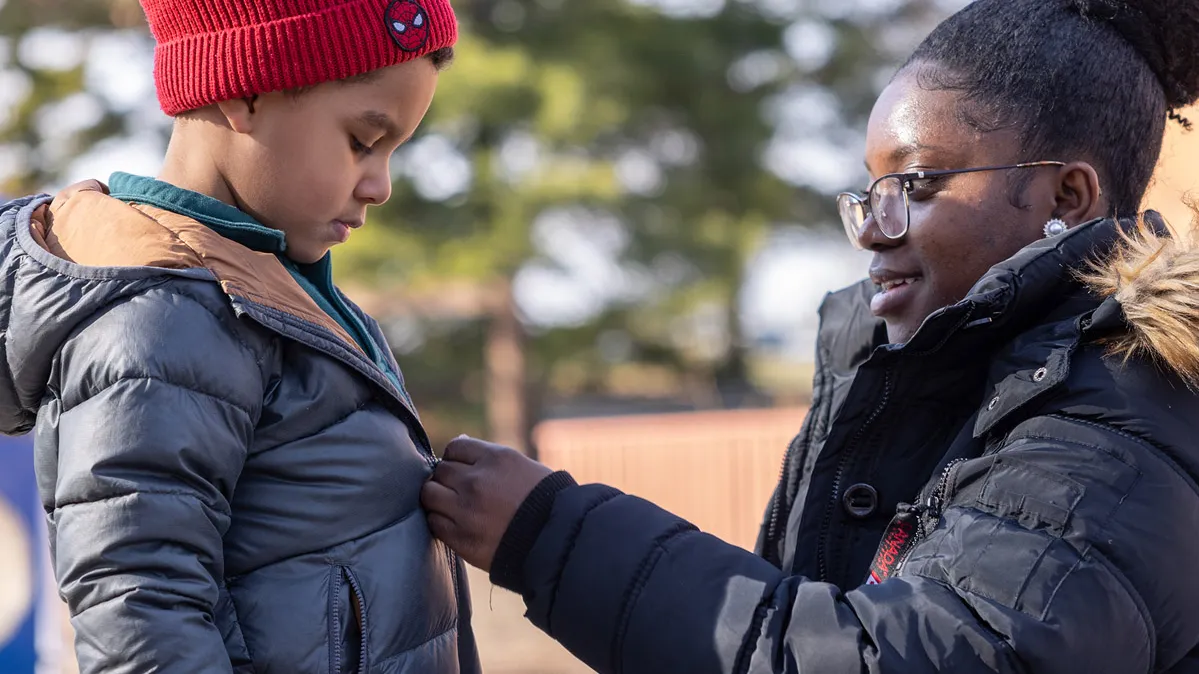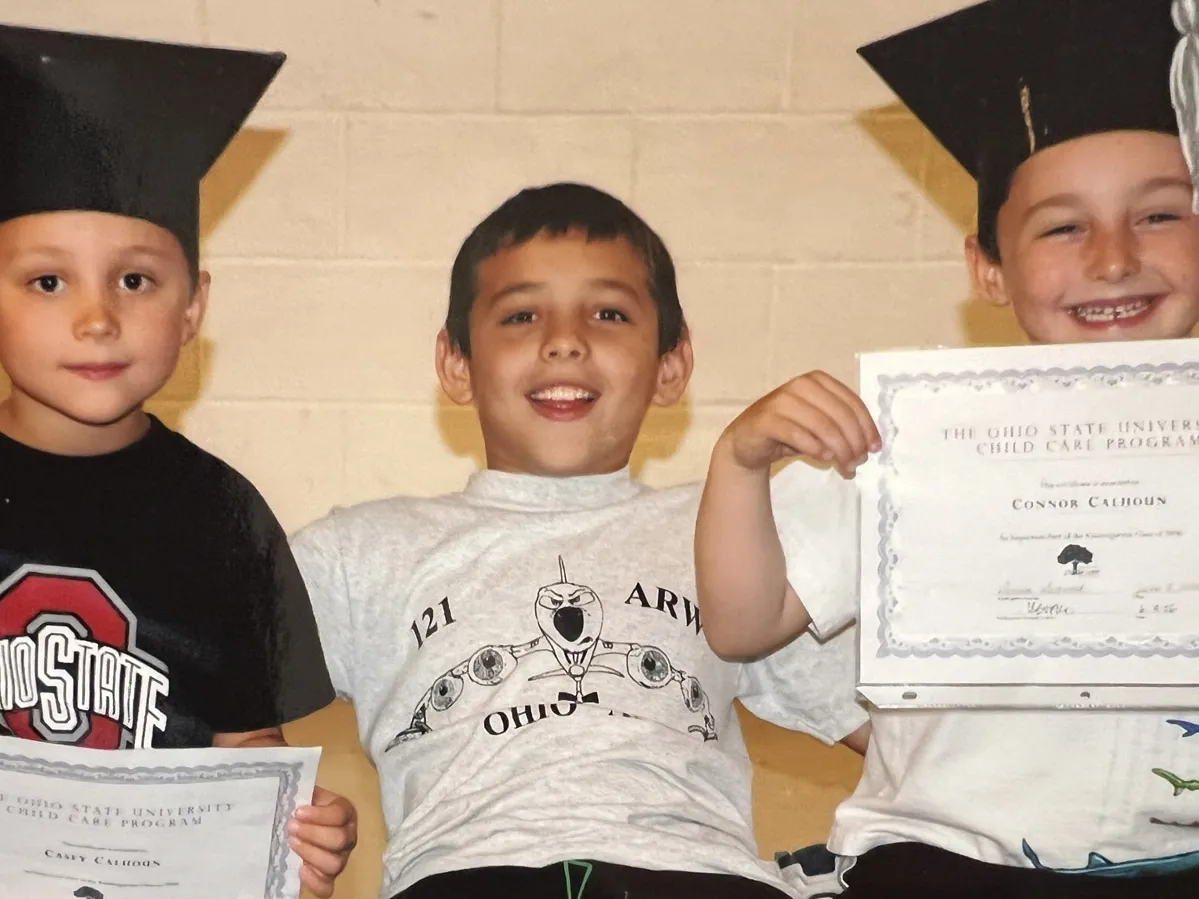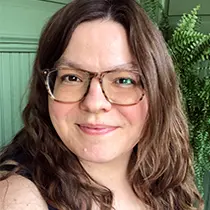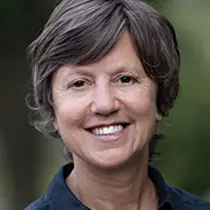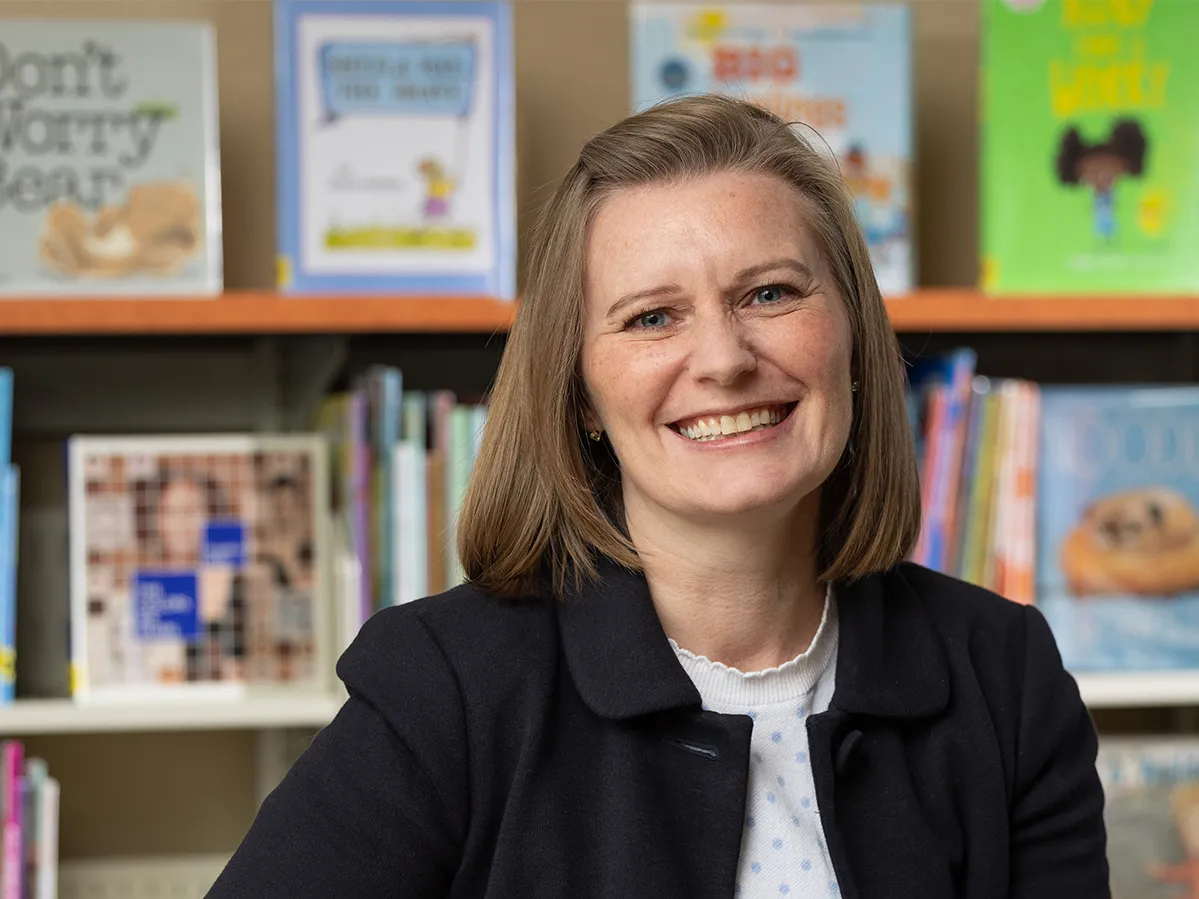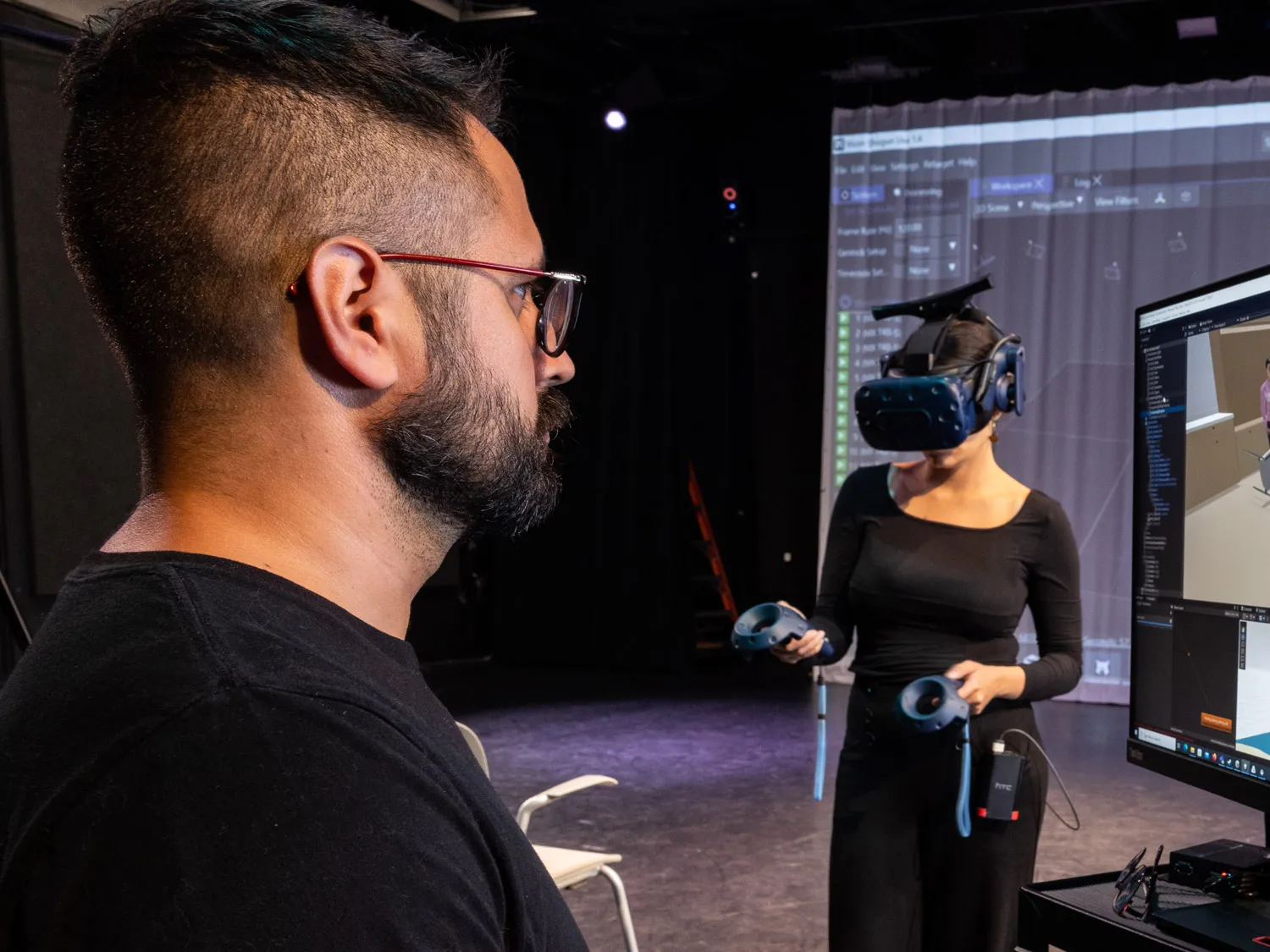Toddlers and preschoolers enrolled in Ohio State’s Child Care Program were among the first children born during the COVID-19 pandemic, a time when families hunkered down and avoided close contact with people outside their social bubbles.
Watching these 3- and 4-year-olds learn to navigate the intricacies of social interaction, something they largely missed out on in infancy, fascinates senior Sara Kearney, one of about 75 Ohio State students who work as teaching aides at the university’s two child care centers. The program serves 430 children.
Kearney majors in human development and family science, a field focusing on how people develop from childhood to adolescence to early adulthood and beyond. Working with the centers’ children has given her an invaluable look at the earliest factors that influence a child’s development.
As a teaching aide, Kearney rotates among classrooms, helping teachers with day-to-day activities, preparing meals, changing diapers and playing with the children. Not being around the same group of kids each day makes their milestones stand out, she says.
“It’s great to come back and see how they’ve developed,” says Kearney, who hopes to become a school counselor. “Maybe they can communicate their needs better, or maybe now they’re going potty on their own. It’s nice to see some strong foundations being built in the children, and it’s really rewarding to imagine the people they’ll become.”
Last year, the program marked its 50th year of providing high-quality care for the children of Ohio State faculty, staff and students — as well as learning opportunities for university students in education and other majors.
Child and youth studies major Angela Oforiwaa was a teaching aide before transitioning to a full-time role as an assistant teacher. She works in one of the program’s pre-K classrooms, where she collaborates with lead teacher Edouine Laforest on lesson plans for the month.
For instance, Oforiwaa helped plan a post office-themed activity in which she assisted kids in decorating paper carriers to transport their drawings and notes from school to home.
Oforiwaa says she savors the relationships she’s formed with the children and their families.
“My favorite part is seeing the kids every morning. They’re yelling my name, giving me a big hug and telling me their stories of what happened to them when they went home,” says Oforiwaa, who eventually hopes to work as a pediatric nurse. “It’s such a heartwarming thing.”
